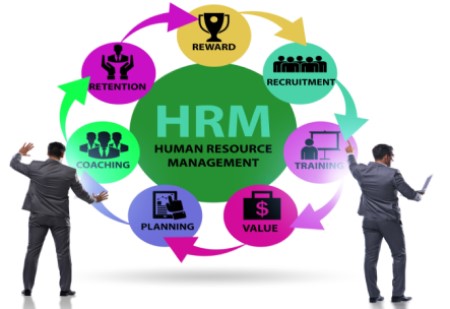Corporate Corruption and the HRM Function: Legal, Ethical, and Moral Perspectives
April 3, 2025
 Corporate Corruption and the HRM Function: Legal, Ethical, and Moral Perspectives
Corporate Corruption and the HRM Function: Legal, Ethical, and Moral Perspectives
What is Corporate Corruption and how pervasive it is? While we are all aware of corruption in the governmental and public sector entities, the lesser reported aspect of corporate corruption is something that does not yet get the coverage and attention it should. This is because unlike corruption in other spheres and walks of life,…
 What the Case of Amazon s AI Powered Recruitment Tool Means for Other Corporates
What the Case of Amazon s AI Powered Recruitment Tool Means for Other Corporates
The Pervasive Use of AI Powered Recruitment Tools Increasingly, many large and medium sized as well as small businesses are turning to AI or Artificial Intelligence powered algorithms and software in their HR or Human Resources processes. Whether it is recruitment where AI driven software “parses” through the mass of resumes in a jiffy and…
 The Challenges of Managing Attrition in Contemporary Organizations
The Challenges of Managing Attrition in Contemporary Organizations
The Reasons for Attrition In recent months, there has been a spate of news items about how attrition is taking its toll on many organizations in Asia and especially in the IT sector in India. Whereas in the west, because of the recession and the gloomy economic conditions, attrition is no longer an issue and…
Until now, we have discussed how the HRM function in organizations works and the role of the function in organizational processes.
We have also discussed the changing nature of the HRM function in recent years and how with the introduction of enterprise software, an entirely new dimension has been added to these functions.
This article discusses the typical functions of a HR manager and analyzes how he or she can make a positive contribution to the organization and add value to the process. First, the HR manager has to juggle between hiring, training, appraisals, and payroll among other things. This means that a typical function of the HR manager would encompass the end to end management of the employee people lifecycle which means that the HR manager would have to take care of everything that is concerned with the people aspect right from the time the employee enters the organization till the time the employee quits or retires from the organization.
Hence, the lifecycle of an employee’s time in an organization has to be managed and this means that the HR manager is responsible for the hiring, training, appraisals, payroll, and exit interviews.

If we take each of these activities in turn, we find that hiring is done in conjunction with the line managers who put out their requirements periodically on the kind of recruits they want and the number of recruits they want. Once the request reaches the HR manager, he or she has to scour the market for potential recruits.
Usually, the HR manager does not personally do this and outsources this function to a placement consultancy. The next step is the interview stage after the shortlists are done and this is an activity where the HR manager either delegates the task of assessing the potential recruits to the staffing team or does the job personally.
In large organizations like Fidelity and Microsoft, there are dedicated teams for each of these activities and this is something we would be discussing in detail in subsequent articles.
After the interview stage is over, the important task of fixing the salary and benefits of the successful candidates has to be done. This is usually the time when the HR manager plays a critical role as he or she has to determine the fit between the role and the candidate and decide on the quantum of salary and benefits that is appropriate to the role and after examining the budgets for the same.
After these activities, the HR manager is also involved in conducting the last stage of appraisals or evaluating the appraisals. In recent years, the trend is more towards the latter where the HR manager in charge of the business unit evaluates the appraisals instead of participating in the process directly. This is done in a manner to determine the quantum of pay hike or bonuses keeping in mind the same principles that were discussed in the hiring activity. What this means is that the HR manager has to work closely with the line managers to get this done.
In many organizations, employees can take their grievances to the HR managers in case they are not satisfied with their pay hikes or the quantum of benefits. They can also complain against their managers in a confidential and private manner.
The last activity that the HR manager is involved in is conducting the exit interviews when employees leave the organizations. This is usually done on the last day of the employee’s stay in the organization and this process consist of a free and frank discussion on what the employee feels about the organization and why he or she is leaving the organization.
The exit interviews offer valuable sources of insights into organizational behavior as the employees can vent their feelings on what works and what does not work in organizations.
Your email address will not be published. Required fields are marked *